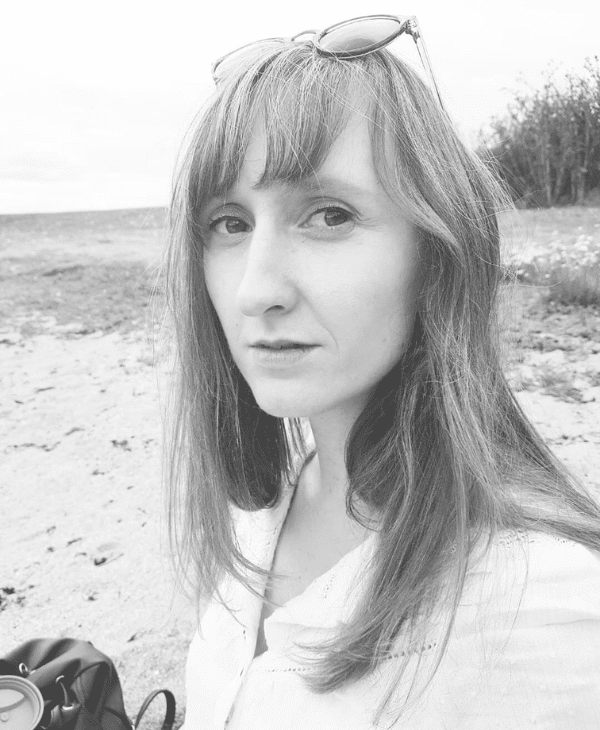MEET THE TEAM
Rebecca Ferrier

Rebecca is a content editor and tutor with The History Quill. She was the 2020 winner of the Emerging Writer Award (formerly the Bridge Award) and has been shortlisted for several other awards, including the Tibor Jones Page-Turner Prize. In 2021, she was awarded funding from Creative Scotland for her novel-in-progress, a historical fiction piece set in a pre-industrial coastal community. She has taken part in numerous residencies and was a UNESCO writer-in-residence with the Melbourne Literature Festival in 2021, hosted by Emerging Writers’ Festival (EWF). She worked as a ghost-writer and biographer for several years, prior to moving into fiction.
Her literary short stories have appeared in journals and collections such as Ireland’s environmental arts magazine Channel, Scotland’s Gutter magazine, The Weekend Read (For Books’ Sake) and The Toast. Her work was included in The Harbour, Dunbar’s Wee Festival of Words anthology, and launched at the Edinburgh International Book Festival in 2013. You will find her nature writing in the Leeds University Land Lines Project, while her most recent personal essay has been featured by EWF. Her poetry can also be read in Lighthouse Journal (Issue 24) and the Heather anthology (forthcoming).
Rebecca is a member of the RSE-funded Death Writes network, from the University of Glasgow’s Creative Writing centre. She also teaches workshops and courses in creative writing with a London-based college.
She has experience coaching writers through romantic works, military-based novels and science fiction pieces. Her tastes are varied, from action-packed genre fiction to lyrical literary works.
If Rebecca were stranded on a desert island, the two historical novels she would want to have with her are Alexandre Dumas’ The Count of Monte Cristo (for its action, adventure, romance and political intrigue; these multiple genres are expertly woven together to create a superbly rich story) and Daphne du Maurier’s Frenchman’s Creek (the perfect escapist read and features dreamy Cornish landscapes).
Historical fiction subgenre specialisms
| Action/adventure |
| Fantasy/alternate history |
| Literary |
| Romance |
| Young adult |
Historical period specialisms
| Medieval (500–1450) |
| Early modern (1450–1800) |
| Late modern (1800–1945) |
“I was so pleased with Rebecca’s structural report for my novel. I knew I had taken my story as far as I could on my own and that I needed honest feedback from someone who understood my subgenre and historical period. Rebecca was that person. Her comments really resonated with me; I was nodding my head a lot as I read through the report, knowing that she was right! The feedback was fair, specific, and actionable, and thanks to Rebecca’s insights, I’m so excited about my novel’s expanded potential.”
